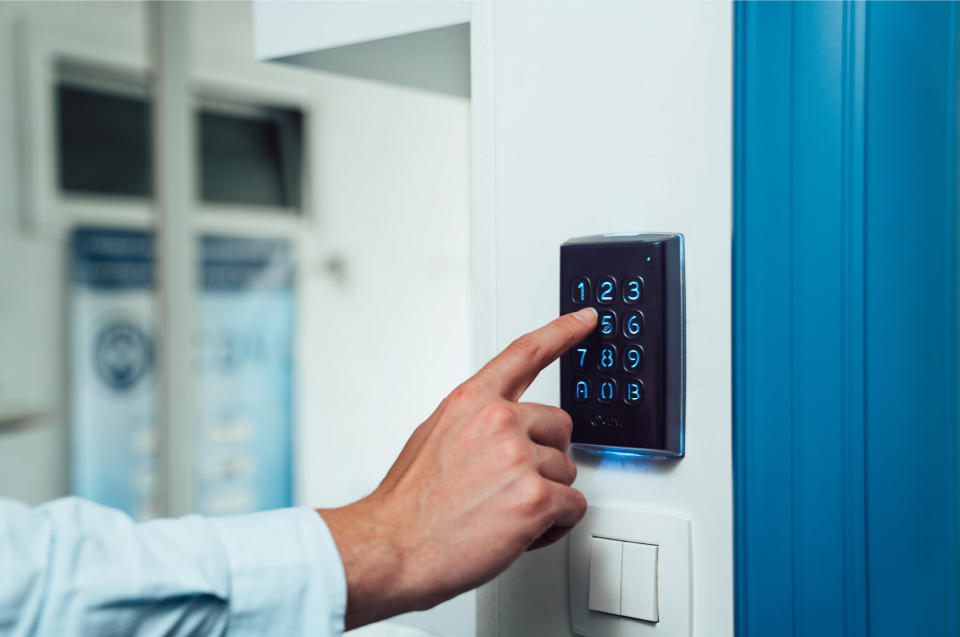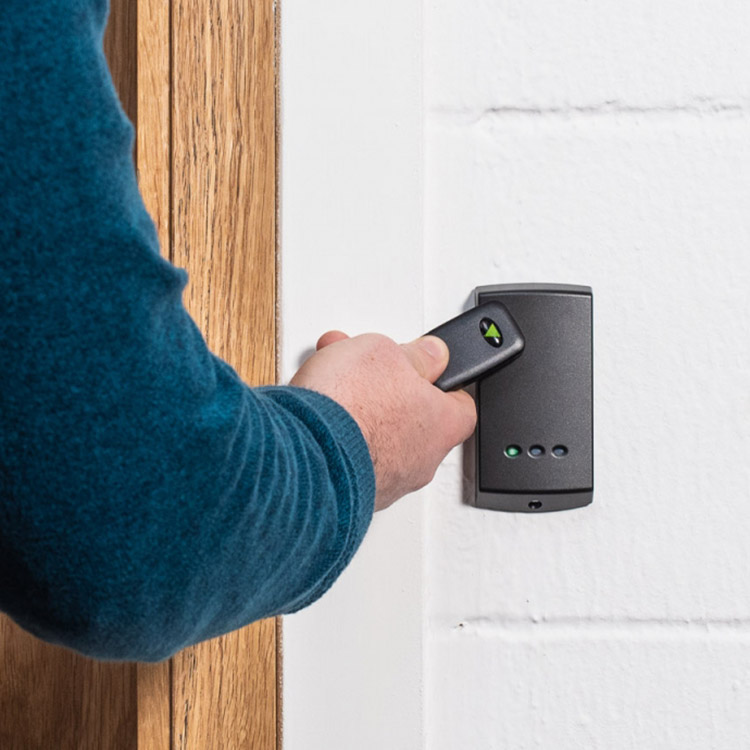Visitor Management Systems & Access Control for Bristol Offices
This process helps to minimize the risk of unauthorized access and ensures that visitors can be quickly identified in case of an emergency. By using systems such as visitor registration kiosks, temporary access cards, or digital check-in apps, businesses can streamline the visitor experience while maintaining strict security measures. These credentials can be programmed to limit access to specific areas, ensuring that visitors can only enter designated spaces.
CCTV & Access Control Bristol – Integrated Security Solutions - Mobile + biometric
- Bluetooth-based access control
- ASSA ABLOY
- Biometric + PIN
- Keypad entry units
Access control systems are essential for safeguarding office buildings in Bristol, providing a robust security framework that keeps your building secure while ensuring authorized personnel can move freely. Access control systems in Bristol's commercial buildings can be instrumental in managing employee work hours. Additionally, access control systems can be programmed to limit access to certain areas during specific hours, ensuring that employees have access to the right spaces at the right times.
When choosing an access control system for your office in Bristol, it's important to consider factors like scalability, security features, and ease of use. Access control systems play a crucial role in safeguarding sensitive data by limiting access to only those employees or contractors who need it. Additionally, access control systems can help businesses create tailored access schedules for employees, ensuring that they can access their workplace at the most convenient times while maintaining security protocols.
By implementing a comprehensive access control system, businesses in Bristol can enhance security, streamline operations, and ensure that only authorized personnel have access to their premises. With advanced access control systems such as RFID tags or biometric identification, businesses can track exactly who enters and exits the warehouse, ensuring that only employees with the appropriate clearance can access high-value items. By automating entry processes, employees can gain fast, seamless access to the building without the hassle of searching for keys.



